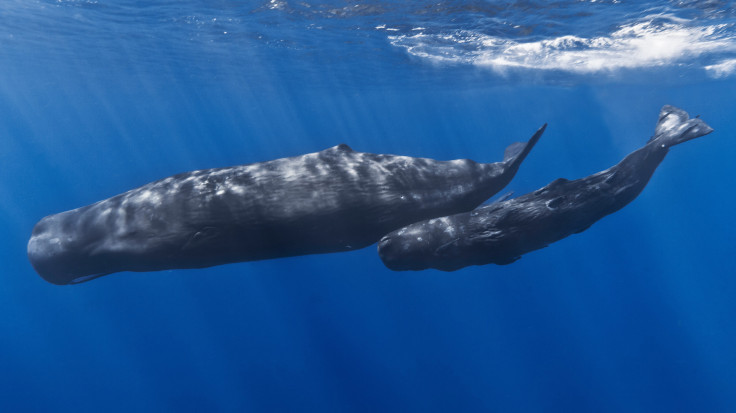Sperm Whale Dies Days After Video Shows It Being Touched And Stroked By Beachgoers
Unlike other beached mammals, like dolphins, most stranded whales end up dying.

A sperm whale that became stranded on Rockingham Beach in Perth, Australia, over the weekend has died.
The 15-meter (49-feet) long whale died Tuesday morning despite efforts by local authorities to nurse it back to health, according to the Parks and Wildlife Service of Western Australia.
"It was moving pretty gingerly and swam only 200 or 300 meters before it really seemed to sort of stop. Its respiration gave us some signs that it really was coming to the end," said Mark Cugley, Incident Controller from the Parks and Wildlife Service.
The whale beached itself on Saturday and soon became a centre of attention for tourists and locals. The videos of the beached whale show people touching it and taking selfies with it.
It swam out to sea after the incident, but was found stranded on a sandbar the next day. It looked "thin, emaciated and in a place it doesn't belong," CNN quoted marine mammal expert Kelly Waples as saying.
Massive sperm #whale appears insanely close to the beach, before heading back out to sea.📍Port Beach, Australia pic.twitter.com/NeNiDAxxHk
— Mebsi (@MebsiLFC19) December 11, 2023
Beaching, or cetacean stranding, is the phenomenon of aquatic mammals stranding themselves on land, usually on a beach. As many as 2,000 mammals beach themselves accidentally every year. Whales that get beached often die of dehydration, collapse under their own weight, or drown when high tide covers their blowholes.
Unlike other beached mammals, like dolphins, most stranded whales end up dying. Marine experts find it difficult to get the huge mammals back into the water before they die of dehydration or other issues.
Sperm whales are the largest-toothed whales on earth. Male sperm whales are usually larger than the females. They can measure up to 20 metres long and weigh over 50 tonnes. They are rarely spotted near shore, as they live offshore in deep water.
Threats to their existence:
Marine biologists and scientists also speculate that sonars from military boats may be interfering with the whales' brain wave activity, leading them to become disoriented or sick and forcing them to swim towards shallow waters, where they end up beaching themselves.
Ocean research has also shown that the navigation systems of naval vessels confuse whales and dolphins since they use echolocation for their navigation. They usually flee in such situations, which is thought to be a major cause of whale and dolphin strandings.
Scientists have previously found that elevated noise levels affect marine animals' ability to find and corral prey, communicate, or navigate properly. The researchers claim that even low levels of noise affect their hearing power.
Changes caused by global warming are also thought to be a reason for the beaching of whales as they go into unfamiliar waters in search of food. Many whales also wash ashore after their deaths.
© Copyright IBTimes 2024. All rights reserved.






